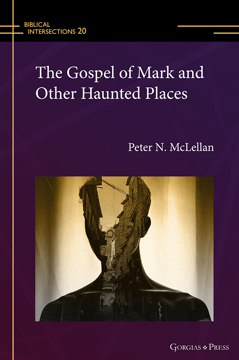Peter McLellan

Peter McLellan holds a PhD from Drew University in Bible and Cultures. He currently works at the intersection of antiracist pedagogy and curriculum direction that fosters belonging as an Educational Analyst at Oxford College of Emory University.
The Gospel of Mark and Other Haunted Places
Series: Biblical Intersections 20
ISBN: 978-1-4632-4271-8
Euro-American biblical scholarship has traditionally conceived of the Bible in a way that removes privileged readers from personal responsibility in the subjugation of marginalized communities. Peter McLellan terms this practice gentrified biblical scholarship: readers removed from difference, because of the gentrification of space in the West, who are left without the conceptual resources to understand their relationship with the Bible as simultaneous relationship with minoritized communities. McLellan deploys the theoretical fields of hauntology and critical space theory to argue that the Gospel of Mark is a haunted place. A project written largely in New Jersey’s wealthy northern suburbs, each chapter converses with vignettes from Newark, New Jersey’s Ironbound neighborhood—a low income, largely Latinx and immigrant community—to explore relations between these two otherwise isolated locales. The result is a discussion of gentrifications harmful effects on vibrant communities, made invisible to suburban Christian readers, and an effort to explore how marginalized people make persistent demands upon those who hold Mark’s Gospel sacred.
$114.95 (USD) $68.97 (USD)



